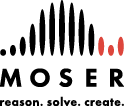GMAT®
What You Need to Know
What
The Graduate Management Admissions Test (GMAT) is a computer-based test that is specifically geared toward applicants to business graduate programs and is used by 90% of US business school applicants. While some schools now also accept the GRE for admission to MBA programs, they represent a small minority.
The GMAT was developed for MBA applicants, and tests specific higher-order reasoning and analytical skills that are relevant to careers in business. Those planning to apply to business school should plan to take the GMAT to allow the broadest range of school choice. The GMAT is accepted at over 2,000 institutions worldwide: hundreds of American universities as well as hundreds more institutions in nearly 100 countries around the world. A strong GMAT score is one of the very most important elements of a successful application to selective business schools.
When
The GMAT is administered on-demand, year-round at test centers around the world. Those wishing to apply to a graduate business program should register to take the GMAT at least one month prior to their earliest application deadline – or earlier if they expect that they may choose to retest. Test-takers can see their scores before sending them to schools, and schools only consider testers’ best GMAT scores, so there is an incentive to retest if you think you can improve your score.
Prospective B-school applicants may want to take a practice exam as an early indication of their starting-point. The test includes a variety of question types across multiple sections, some of which are unique to the GMAT, so many testers will benefit from working with a qualified coach who can guide them through what may be a considerable study process. The amount of study sometimes necessary means that those wishing to enter business school should begin preparing for the GMAT at least several months before application deadlines.
How
To register for the GMAT, test takers will first create an account with the GMAC (Graduate Management Admissions Council) at mba.com. This account is used to prepare for the test, to register for exams, and to send scores to schools. The cost of the GMAT is $250.
Test Format
The GMAT consists of four sections: Verbal, Quantitative, Integrated Reasoning (IR), and an Analytical Writing Assessment (AWA) that last a total of 3 hours and 7 minutes. Test takers may choose from one of three section orders according to their strengths and preferences: AWA, IR, Quantitative, Verbal; Verbal, Quantitative, IR, AWA; or Quantitative, Verbal, IR, AWA.
The Analytical Writing Assessment consists of a single topic and gives test-takers 30 minutes during which to analyze a brief (several sentence) argument on a given topic and to write a critique of the argument. The essay is scored on quality of ideas, organization, use of supporting reasons and examples, and command of the elements of standard written English.
The Integrated Reasoning section consists of 12 multi-part questions of four types: Multi-Part Reasoning, Graphics Interpretation, Two-Part Analysis, and Table Analysis. This 30-minute section assesses test-takers’ ability to apply concepts presented in written passages, to analyze written material and draw reasonable conclusions from the information, to identify relationships within that information, and finally to make strategic decisions based on that information.
The Quantitative section consists of 31 questions that testers must complete in 62 minutes. These come from two question types. Problem solving questions test knowledge of basic mathematical concepts and the ability to interpret questions and reason quantitatively to solve problems. Data Sufficiency questions measure testers’ ability to analyze quantitative information and determine whether given information sets are sufficient to solve a problem. This section is computer adaptive, meaning that the computer attempts to present testers with questions that match their ability level.
The Verbal section consists of 36 questions of three types that testers must complete in 65 minutes. Reading Comprehension questions assess testers’ ability to understand written information. Critical Reasoning questions measure testers’ ability to comprehend and evaluate arguments. Sentence Correction questions assess testers’ knowledge of and ability to apply the conventions of standard written English. This section is computer adaptive, meaning that the computer attempts to present testers with questions that match their ability level.
Scoring & Accommodations
Scoring
Total GMAT scores range from 200 to 800, with most testers scoring in the 600–400 range. The Quantitative and Verbal sections are each scored individually on a 0–60 point scale. Testers are only score on the questions that they complete, but there are significant penalties for not completing the entire section in the allotted time. The Analytical Writing Assessment is scored by two evaluators (one of which may be an automated essay-scoring engine) from 0–6 in half-point intervals. The Integrated Reasoning section is scored from 1–8. Though most IR questions are multi-part, no partial credit is given. Unofficial scores are available as soon as testers complete the GMAT. Official score reports become available online approximately 20 days after the test.
Testing Accommodations
The GMAT offers a wide spectrum of testing accommodations for testers with diagnosed needs in order to level the playing field for all testers. Test takers must submit an application for accommodations prior to registering to take the GMAT. Information is available here.
We're Here to Help!
We have helped thousands of students worldwide reach their testing and academic goals. Our senior tutors have over 10,000 hours of one-on-one teaching experience, and as a result of our customized programs, Moser alums have gone on to attend top schools.
See why the Moser name is trusted by families and schools alike. Call today for a free consultation!
Fill out a form and receive an in-depth consultation free of charge.
Call our Founder and President, Scott Moser, to discuss your student’s goals and needs.
